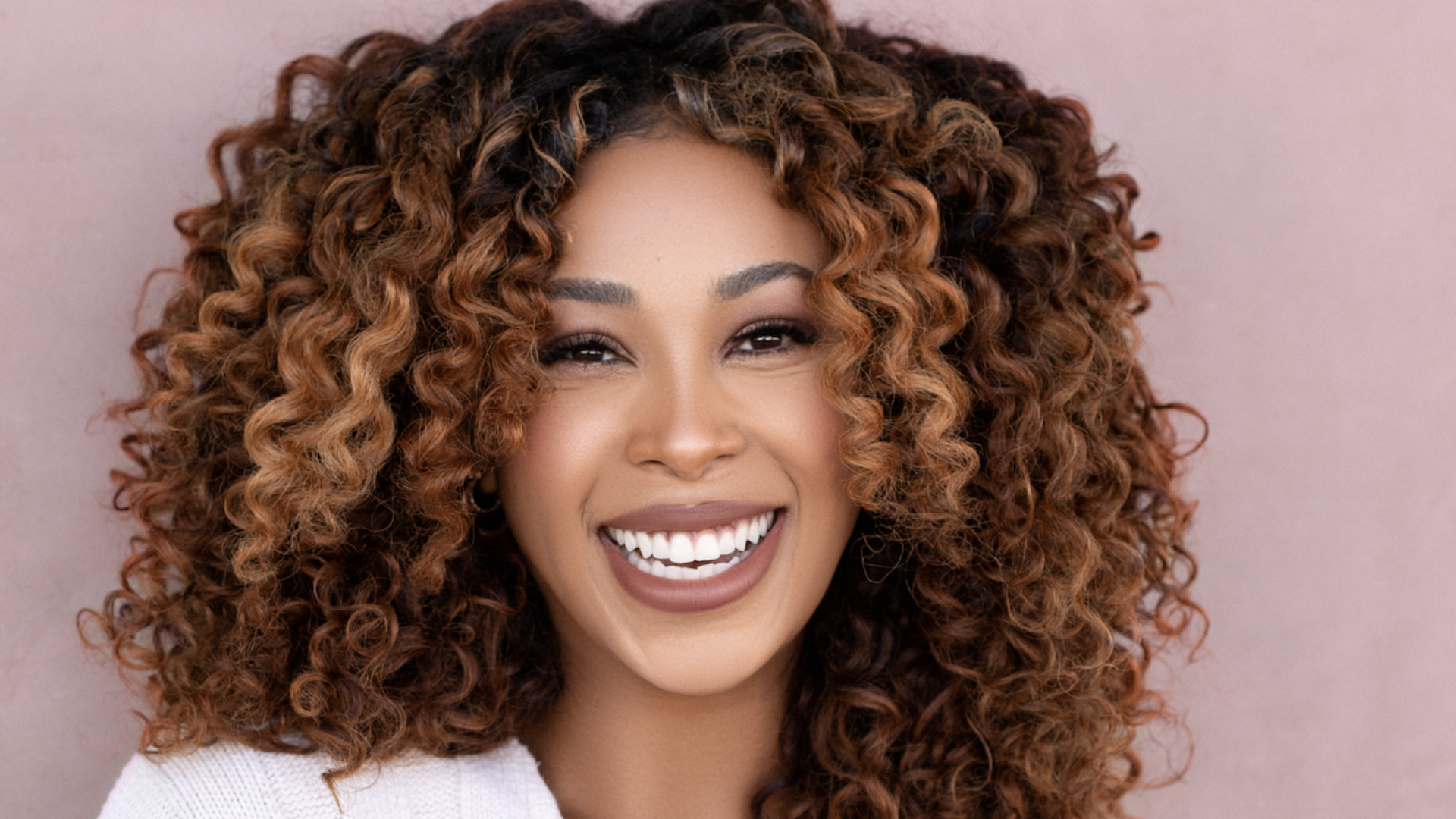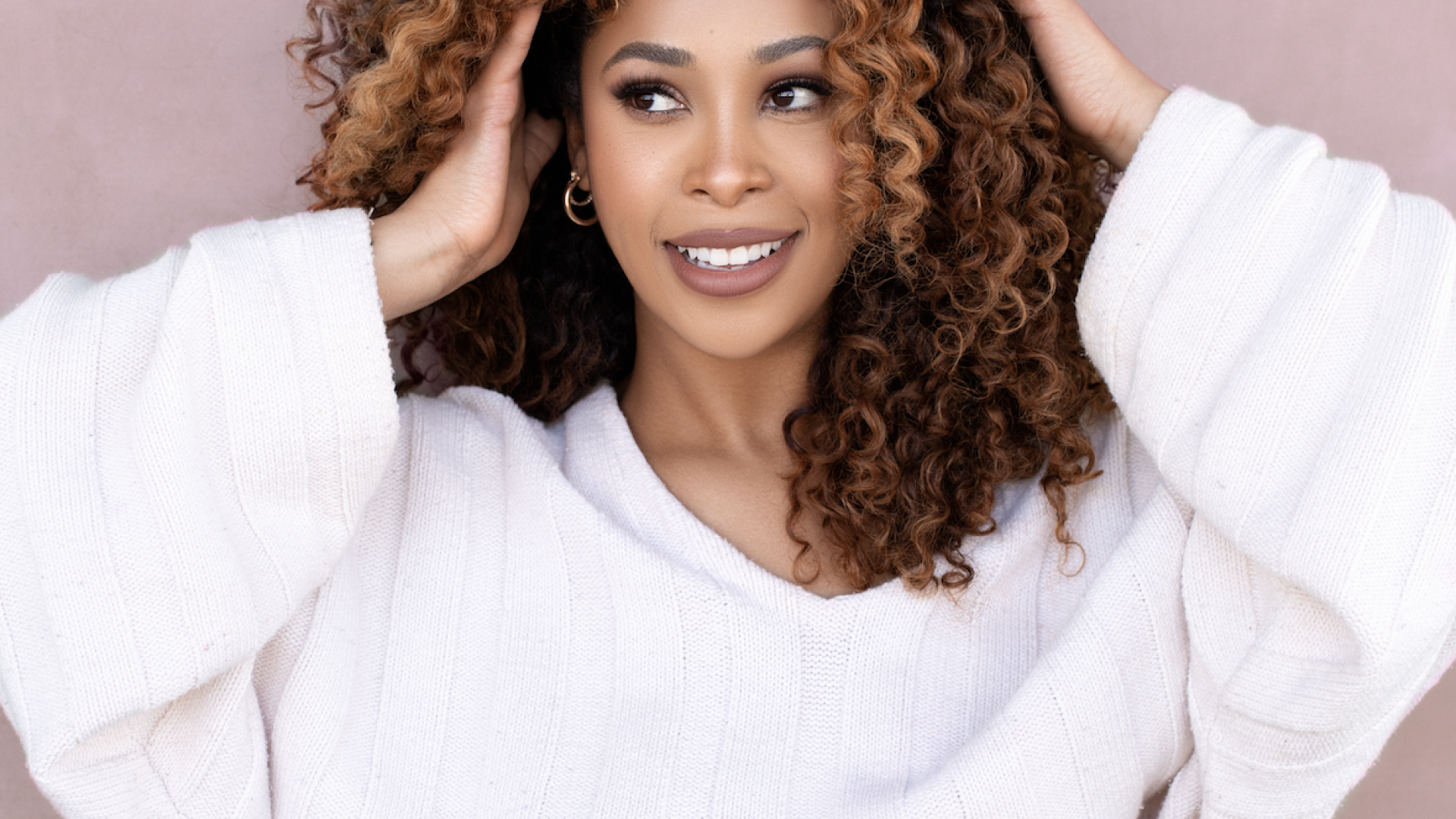
Representation in television is best when paired with authenticity. HBO’s A Black Lady Sketch Show is also real as it gets. One of the new faces of the recently-debuted second season is Skye Townsend, a young comedian who plays 25 radically different characters across six episodes.
“I think with characters, if you want them to be different, you have to think about everything that goes into them down to their walk, down to how they hold their hands, and down to how they hold their mouth,” Townsend said to Essence GU. The show, helmed by The Queen Latifah Show‘s former lead writer, Robin Thede, was renewed for a third season on May 25.
On Sketch Show, race, relationships and reality are all up for analysis. There’s a running joke about Herteps (women who are “Hoteps“), another ongoing skit about how Black women would handle the apocalypse, a noncommittal couple that’s still unsure, even at the altar, and one sketch that looks at being late to work because you have to finish your makeup. The series is also famous for centering (and employing) Black women in front of the camera and in the writers’ room. The main cast for season 2 is: Townsend, Robin Thede, Gabrielle Mosley, Ashley Nicole Black and Gabrielle Dennis.
“I always want to be known for my chops,” Townsend said, commenting on how even though detractors may try to credit her success to other factors, she’s still going to stand out for her hilarity. She isn’t fazed because she’s confident in her star power.
We spoke with Skye about her Vine days, late comedian Paul Mooney, what it means to be a funny woman and more. Keep scrolling to read our full conversation.
You were pretty popular on Vine back in the day. Do you feel that was an introduction to acting?
I feel it was my foot in the door was using social media. I always knew when I was making content that I didn’t want that to be the end all be all. So it was really exciting because it helped me get to auditions. Once I got into really auditioning, I was like, This is where it really is. This is for the big dogs.
How do you think social media has changed how you can enter the world of comedy and careers in general?
I think with social media, there are pros and cons. As far as comedy, I do believe it’s made a lot of people lazier with the content they’re creating. They feel if they hit big once, it’s like ‘Let me just keep kind of doing the same thing because it’s microwave success. ‘
I have a lot of friends where we have to sit down and discuss that we had gotten lazy and didn’t realize it. We stopped studying because we knew we were getting attention regardless. I think that’s an issue with my generation overall though; the microwave culture of success can be overnight because of social media. A lot of us don’t do the homework that we should.
So I have mixed feelings about it. I think it can definitely get you attention and get your foot in the door. A lot of the greats that came before us really took the time to study their craft, not just pop out a five minute video and expect success. You’re not entitled to any type of success. You really have to train for it.
You once said you grew up watching sketch comedy, such as Saturday Night Live, In Living Color and Chappelle’s Show. The late Paul Mooney, (who was in the Black Pack with Robert Townsend), was involved in all those. I was wondering if his comedy informed you at all.
Absolutely. I believe I met him about two times. The thing about Paul Mooney, which I think a lot of our generation doesn’t have, or kind of steps away from, is that really pure, raw fearlessness. I think it’s something beautiful in comedy. He stood by everything he said and he wasn’t afraid to make statements.
At the end of the day, you can’t make everybody happy with comedy. Paul Mooney was a pure representation of that, of doing whatever he wanted. If you felt him, you did. If you didn’t, you didn’t.
Read this piece on 7 shows you probably didn’t know Paul Mooney was behind.

“I played 25 people this season and for me, I really wanted them to be drastically different. I didn’t want five people to sound the same.”
So much of his material centered on race. So when you see criticisms, it’s usually because he was talking about that. He just embodied that old school type of comedy. It reminds me of Black women in comedy, like Mo’Nique, Angela Means, Sheryl Underwood and Sommore. How do you feel you fall into, but also stand out from, that lineage of Black women in comedy?
I feel I look at those women and I admire them because it taught me the importance of being bold and being willing to stand by what you say. I always say I’ll either own everything I say. I think with them, they delivered their comedy in a way that is so authentic that you can’t be mad at them. In the same for me, despite growing up and watching all of those women, I also was madly obsessed with character work.
I remember seeing Austin Powers or seeing Jim Carrey and being like, ‘They can transform into all these people. How do I blend these two worlds of being a bold, Black female comedian, but still tapping into the quirkiness that sometimes they don’t allow us to do?’ Usually it’s the white male comedians who are allowed in that space. So for me, it’s really been important to try to blend the two and see where I fit in, in between both of those worlds.
I feel like people have a hard enough time preparing for one role, but here you are in your first season of the show and you’re already taking on a number of roles. How did you prepare for that?
I played 25 people this season and for me, I really wanted them to be drastically different. I didn’t want five people to sound the same.
What was really beautiful and a hidden blessing was we got shut down (due to COVID-19) a few days before filming and then we were shut down for eight months. I remember having a conversation with my dad about how frustrated I was that I felt I was finally getting a break. He said, ‘What do you mean? You have time to study. You have time to learn your character. You have time to give them backstories, quirks and mannerisms.’
So for me, I really had extra time to add in that I wouldn’t have had before.
A number of entertainers have said they’ve used that time to prep. It’s great that you were able to use those months to sharpen yourself. You mentioned your dad, so I wanted to talk a bit about your upbringing.
Of course growing up, I understood that my dad was in the spotlight, but my dad is just really Chicago to the bone. So we were raised very regularly. We were raised with chores. We understood the value of a dollar because we had to earn it. So growing up around him, I was really inspired to always be creative and to try new things and to just dabble into anything that I was curious about and figure out what I really loved.
He was so creative when we were younger and just always encouraged us to try anything. A lot of parents are afraid to let their kids explore and he was not one of those.
That’s beautiful. So, there’s a show on Amazon Prime called The Marvelous Mrs. Maisel. Have you seen it?
I have seen a few episodes. Yes.
It’s about a housewife in the 1960s who decides to become a standup comic. She’s faced with a lot of disrespect and sexism, even though she’s a great, funny comedian. So I wanted to know why you think women have to go through so many hoops and hurdles just to be funny? Why is it that we have to contort ourselves just to make a joke?
I think at the end of the day, it’s hard for people to process that women can be just as bold as men. I know that historically, of course, they’ve always said, ‘A woman stays in her place’ and whatever. So when we started talking the same talk, I think it was a lot for people to digest. They saw how much power we had in our comedy.
I think women will always be discredited because it scares men for a woman to have that much power; let alone be funny and not care about their opinions. That’s terrifying—a woman who doesn’t care what you have to say. People don’t know how to process that.
“If I can make myself chuckle, I know I can make it to the next day.”
We’ve not been taught to embrace ourselves in that way. We’re definitely not encouraged to be free within ourselves. So when you are, it’s very jolting and jarring and it’s kind of funny to watch people squirm.
I love it!
What is humor to you as a concept? Is it a way to cope? Is it expression?
Humor is for me personally, survival. Humor is connection. I think it’s for me, it’s the most fascinating, beautiful thing. When I connect with somebody over a laugh, I think it’s medicine.
I think the strongest people can find a joke in anything at the lowest moments of life. If I can make myself chuckle, I know I can make it to the next day. Comedians understand that there’s a time to be serious, but we also understand if we don’t laugh through this moment, we might not make it through. So I think a lot of people think humor’s always light.
At the end of the day, most of the comedians that I know have extreme depth, are thoughtful, clever and really aware of what’s going on in the world. They just understand that their responsibility is to make the world a little bit lighter and to educate people through the jokes that they’re making.
Keep up with Skye by following her on Instagram.